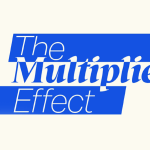By Greg Paull, Co-founder and Principal, R3
It seems that agencies have fifty words for rebates.
Once upon a time, this was a simple industry. If a company paid $100 for media, agencies were entitled to a 15% “commission.”
Hence, on behalf of the marketer, it would act as its ‘agent’ to produce advertising and manage the whole process. Ironically, we lived in those simple times not realizing this was in fact a ‘rebate’ from the media from the beginning.
Creative and media unbundled, media owners got squeezed for revenue, programmatic, barter, DSP’s, Digital, Social and more all emerged, and here we are now in this mulligatawny soup of a situation.
So what IS a rebate?
Is it a cash rebate?
This was the most common term mentioned in the eponymous ANA (Association of National Advertisers) report – which made “transparency” a word in the industry and even brought a series of ex-FBI investigators, to conduct the work – that, in exchange for investment in a media channel, that vehicle will offer a percent back to the agency, in cash.
The study found 38 separate incidents of this, ranging from 1.67% to 20%.
Ironically, several study sources suggested this money goes back to clients – all this in a market where, before the report, the industry insisted there were, in fact, no such thing as rebates.
…. Occasionally media forget to invoice agencies, but regardless, clients pay for that media. An agency will often keep those funds in escrow for a while, until eventually moving it into the bottom line.
Is it free media?
Every good media agency negotiator will push owners hard to optimize added value.
The ANA’s study identified that the issues with this is that some agencies were retaining these hard-earned negotiations internally, or else, given the flexibility to use it for any client.
Dear agency, the only reason you are getting this free media is because a client gave you their money.
Is it research? Or consulting? It seems logical, right?
Media owner wants to improve their service offering. Agency offers to provide research or consulting support to do that.
The report was quite specific on this factor – “This related to work that was of minimal utility, significantly overpriced – or not provided at all.”. In short – a rebate.
Is it a referral fee?
More common amongst Adtech, agencies have set up referral fee agreements, paid at the end of each year – many as high as 10% of media spend. You might be best to call this a rebate.
Is it unbilled media?
Mistakes happen through the course of a complicated media campaign. Occasionally media forget to invoice agencies, but regardless, clients pay for that media. An agency will often keep those funds in escrow for a while, until eventually moving it into the bottom line.
Is it from an Agency as Principal?
Agencies have said that they won’t buy their own inventory and then resell it. This approach has been happening in the US – and it already a well-established “business as usual” in markets like Japan and Korea. Markups here were reported to range “from 30% to 90%”.
How Should Marketers Respond?
We’ve spent a lot of time in this article on the “rebate’ part and not much on the “read” – and this is where the fundamental disconnect is.
As marketers’ jobs have become more complicated, it has been difficult for many of them to know as much as they would like about the ecosystem they participate in, especially in the important fields of media planning and buying.
This has to change quickly – or else CMO’s can no longer look their CFO’s and CEO’s in the eye and tell them that all of their money has been invested wisely.
Here is what we would recommend…
- Change Contracts Immediately.
Marketers will have no legal standing in this debate, unless the wording in their contracts with their agencies protects them from these kinds of issues. Most don’t.
- Report Rebates Regularly.
Rebates are not going away, but the best agencies are pro-actively reporting these on a quarterly basis to their clients, so that media channel decisions can be mutually made on what will most effectively reach the consumer.
- Audit Agencies Annually.
A simple onsite financial audit by a third party is crucial to make sure agencies are accountable and fulfilling their legal commitments. It makes no sense for one company to give another $10m, $50m or $100m and not expect some independent oversight on how it was invested.
Greg Paull is Principal and Co-founder of R3, a global independent consultancy focused on driving transformation for marketers and their agencies. www.rthree.com
————————————————————————————————————

The full-day Malaysian Media Conference on October 23 showcases 20 speakers and panelists and will be held at the Sime Darby Convention, which adheres to the highest COVID-19 protocol standards. REGISTER HERE: https://marketingmagazine.com.my/event/malaysian-media-conference-2020/
MARKETING Magazine is not responsible for the content of external sites.











